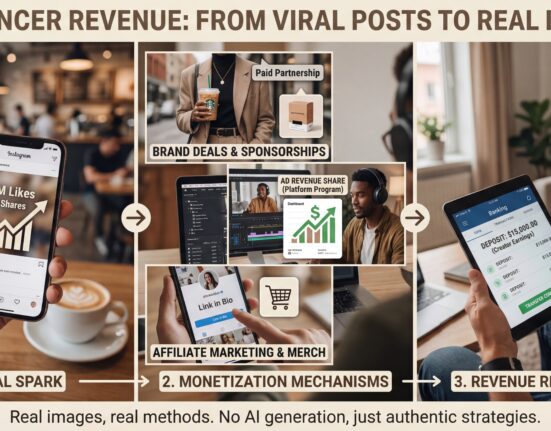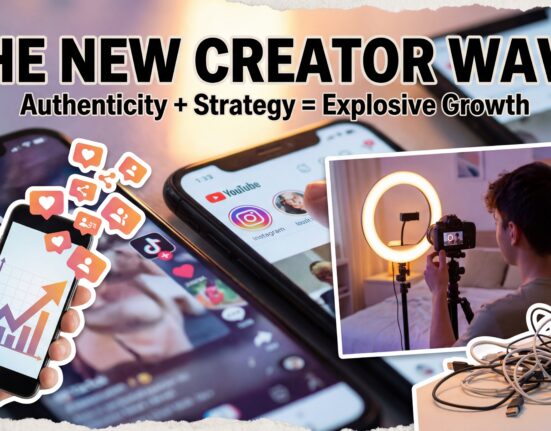Introduction
In 2025, the global entertainment scene has undergone a seismic shift—and at the center of this transformation are the ever-rising K-Pop stars. What once started as a regional pop culture movement has now transcended language, geography, and industry boundaries. From music charts to blockbuster films, fashion runways to streaming platforms, K-Pop idols are taking over Hollywood in ways no one could have predicted a decade ago.
This phenomenon is not just about fan obsession or catchy music. It’s about strategy, discipline, cultural convergence, and a generation hungry for global icons who represent more than just entertainment. So, why are K-Pop stars taking over Hollywood in 2025? Let’s dive into the layers behind this cultural takeover.
The Global Explosion of K-Pop
Over the past ten years, K-Pop has transformed from a niche genre to a global force. Groups like BTS, BLACKPINK, and EXO cracked international charts and earned die-hard fans in every corner of the globe. But 2025 marks a new era—where K-Pop stars aren’t just chart-toppers; they’re headline-makers in Hollywood too.
With millions of followers on social media and streaming platforms, K-Pop stars bring an already established global fanbase to any Hollywood project. Their ability to attract audiences across continents makes them a powerful draw for producers, directors, and brands alike.
From Music to Movies: The Crossover Effect
One of the most noticeable shifts in 2025 is the seamless transition of K-Pop idols into film and television. Many are no longer limited to cameos or minor roles. Instead, they’re headlining major productions and working alongside Oscar-winning actors.
Take Han Seo-jun, a former K-Pop group leader, now starring in a Netflix action franchise that has dominated global viewership for three consecutive quarters. Or Minji Park, a once-unknown idol turned Marvel Universe lead, praised for her intense performance and martial arts finesse.
Hollywood is not just borrowing their popularity—it’s embracing their work ethic, versatility, and multilingual skills, all of which are essential in the era of global streaming dominance.
K-Pop’s Training System: Hollywood’s Secret Weapon
One of the reasons K-Pop stars succeed in Hollywood is because they’re arguably the most well-trained performers in the world. Idol training in South Korea begins at an early age, focusing on singing, dancing, acting, languages, fitness, and even etiquette.
By the time they debut, most idols have already trained for 5–7 years. Compare that to many actors who stumble into fame with little formal experience, and the difference in discipline becomes clear.
This training has created a generation of multi-talented, camera-ready professionals who are ready to handle the grueling demands of Hollywood, from intensive shoots to worldwide press tours.
Multilingual and Multicultural Advantage
In today’s interconnected world, language is no longer a barrier—especially for K-Pop stars. Most idols are fluent in at least two or three languages, with many speaking English, Korean, Japanese, and Chinese fluently.
This linguistic dexterity allows them to take on roles in international projects without the need for dubbing or subtitles. It also makes them effective communicators during interviews, press conferences, and promotional campaigns across diverse markets.
Moreover, K-Pop stars often understand global cultures better than their Western counterparts, having toured globally and engaged with fans from different countries for years. This cultural fluency is invaluable in a diverse and globalized Hollywood landscape.
Fashion, Brand Deals, and the Luxury Industry
K-Pop stars are not just conquering film and TV—they’re dominating fashion and lifestyle industries. In 2025, every major luxury brand from Louis Vuitton to Dior to Chanel has at least one K-Pop ambassador.
But unlike traditional celebrity endorsements, these collaborations are strategic partnerships. K-Pop stars influence millions through Instagram, TikTok, Weverse, and fan cafés, where their fashion choices spark trends overnight.
When these same stars enter Hollywood, their built-in influence brings luxury branding directly to American red carpets, generating fashion headlines and viral moments that boost visibility for both the films and the brands they wear.
Streaming Platforms Fueling the Trend
The rise of streaming platforms like Netflix, Disney+, and Amazon Prime has been a game-changer. No longer is Hollywood restricted to casting Western celebrities. These platforms are algorithm-driven and global in reach, and they want stars who appeal to subscribers worldwide.
K-Pop stars check every box: global popularity, social media traction, cultural diversity, and cross-market appeal. As a result, casting directors are actively looking for idols who can drive up subscriptions in Asia, Latin America, and Europe—markets where K-Pop reigns supreme.
Streaming services have also normalized subtitles, making Korean-language content widely accepted. Now, a K-Pop star acting in Korean or English is no longer a niche offering but a mainstream choice.
Fan Power and Fandom-Driven Marketing
K-Pop fandoms are unlike anything Hollywood has ever seen. These global communities organize streaming parties, fund billboard campaigns, trend hashtags, and buy out cinema screenings—all without formal marketing efforts.
This grassroots-level promotion is priceless to Hollywood studios. When a K-Pop star is cast in a film, their fans automatically become part of the marketing machine, creating buzz long before a trailer even drops.
In fact, several Hollywood producers in 2025 now factor in an idol’s fanbase engagement metrics before casting them, understanding that fandom equals box office insurance.
Breaking Stereotypes and Rewriting Narratives
Until recently, Asian representation in Hollywood was limited and often stereotypical. K-Pop stars have begun to rewrite those narratives, offering authentic portrayals that challenge outdated norms.
No longer the “sidekick” or martial arts cliché, K-Pop idols are now playing lead characters, love interests, heroes, and complex protagonists. Their presence is reshaping how Asian talent is perceived in Western media.
Furthermore, their success is opening doors for more Asian creatives—writers, directors, producers—making Hollywood more inclusive and globally representative than ever before.
Digital Savvy and Content Creation
K-Pop stars are digital natives. Long before influencers became mainstream in the West, idols were livestreaming, vlogging, and creating behind-the-scenes content that brought fans into their daily lives.
This comfort with content creation allows them to extend their Hollywood work far beyond the screen. They create BTS clips, Instagram takeovers, TikTok dances, and live Q&As, driving engagement with projects in ways that traditional celebrities often cannot.
Their adaptability in the fast-changing digital landscape makes them valuable assets for modern film promotion.
Strategic Collaborations and Talent Agencies
Talent agencies in Hollywood have now begun forming joint ventures with Korean entertainment companies, ensuring smoother cultural navigation, legal contracts, and project planning.
Management firms like HYBE America, SM Entertainment Global, and JYP USA are partnering with major Hollywood studios to strategically insert idols into film slates, music scores, and original content production. This structural integration ensures that the K-Pop-Hollywood crossover isn’t a passing trend—but an evolving business model.
What This Means for the Future of Global Entertainment
With K-Pop stars thriving in Hollywood, the entertainment landscape is rapidly shifting toward cultural fusion, global storytelling, and pan-continental stardom.
No longer is Hollywood the sole hub of global fame. Instead, a new axis of influence is forming, connecting Seoul, Los Angeles, London, and Tokyo in a powerful creative network.
This shift means audiences will get richer stories, diverse representation, and multilingual experiences. And K-Pop stars will remain central to this future—because they are built for it.





